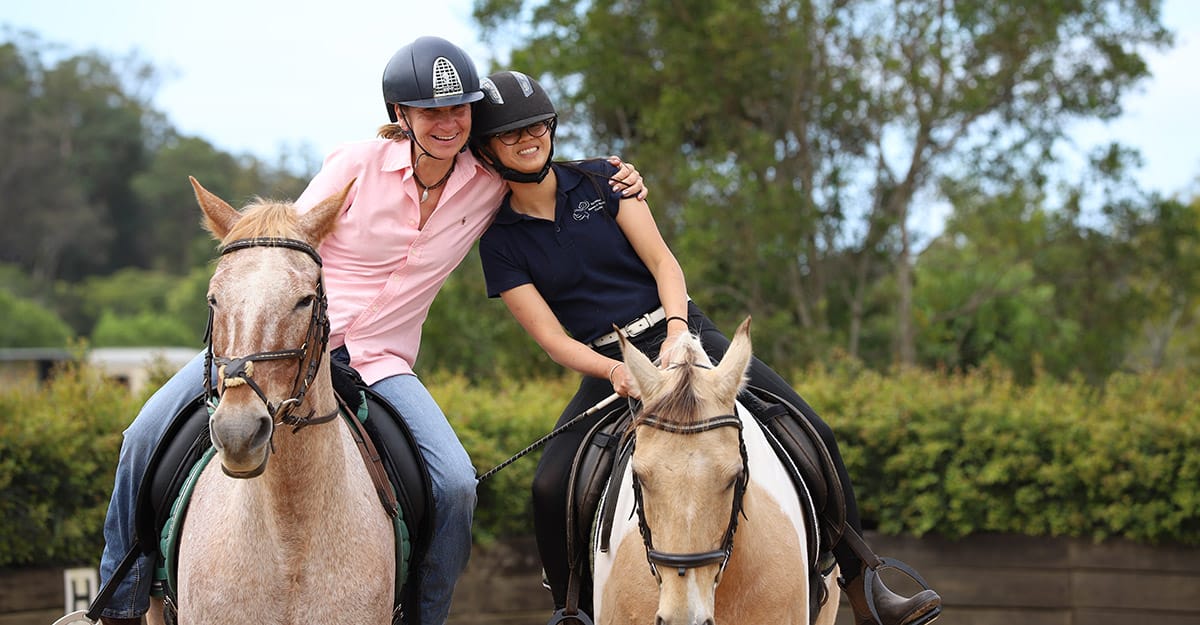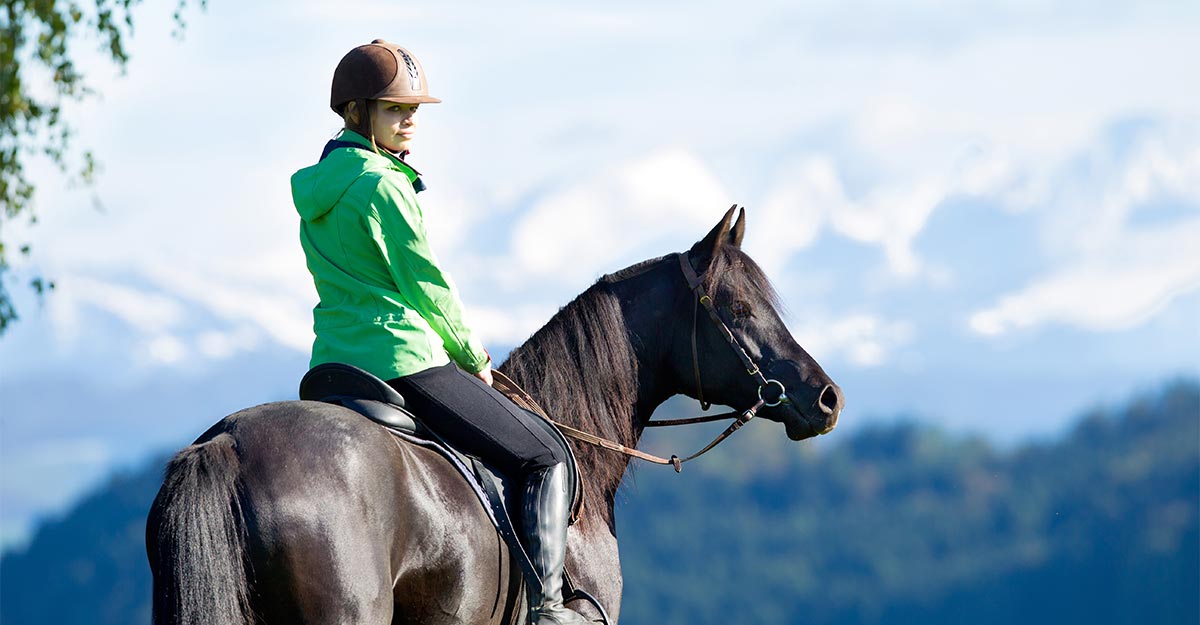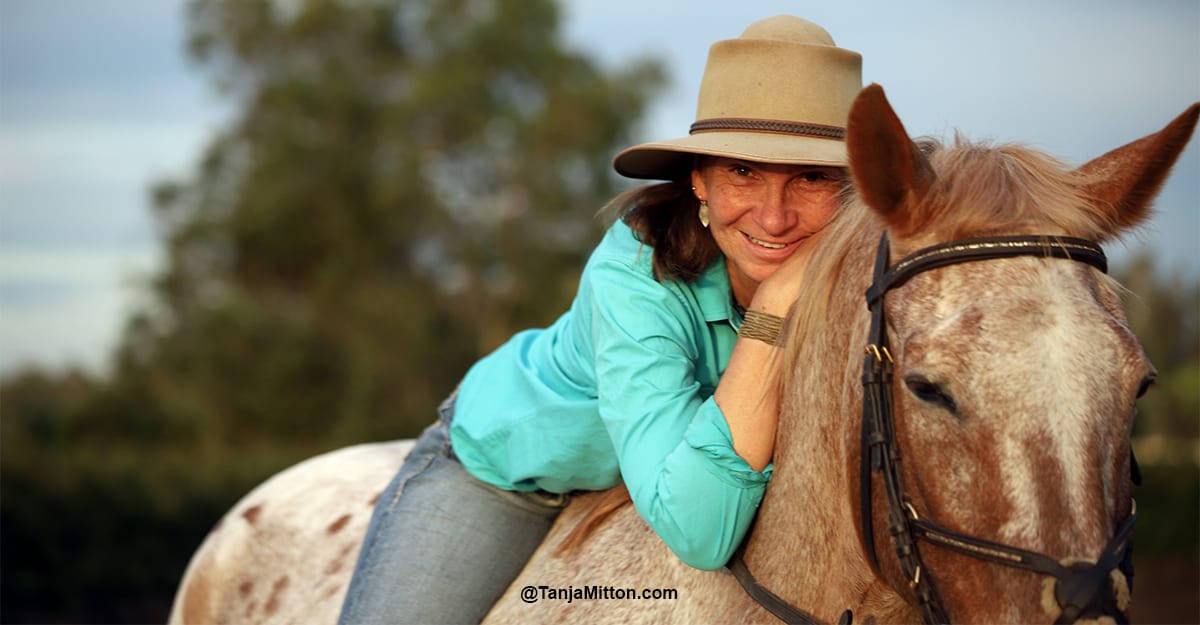There are many situations in our daily lives when the pressure is just too high for us to bear. It may be the pressure to perform, the pressure of expectation, and/or the pressure that we place ourselves under.
We often experience the same with our riding, even though it is meant to be our down time – that precious time when we hope to de-stress!
Here are some strategies you can use when the pressure gets to you.
The first step is to identify what pressure it is that we’re under, and why we are feeling it.
Most people blame their environment for the pressure they feel and yes, often, the pressure comes from others, however, if we simply blame our environment, we become a victim of our environment.
Let me explain in more detail what I mean, because I can already hear some of you say “yes, but…”
Let’s say you have a nice young horse that you are training at home and is starting to go well. People will come up to you and ask when you are taking him out to competitions.
Some riders will instantly feel under pressure by being expected to take the horse to competitions, when in reality, the other person simply asked a question.
It is not what other people say that creates pressure but rather, how we interpret what is being said.
Another example might be the pressure to succeed. Many riders ascribe to the belief that progress equals stepping-up to the next competition level, or training higher movements at home.
I think it was Manolo Mendez, the Spanish trainer based in Melbourne, who said that the greatest progress is achieved in the walk. From memory, his advice was to walk for three months.
I can’t say I have tried the three-month timeframe, but I have had horses that I walked for four to six weeks, and the improvement was incredible.
Remember that it is up to you how you interpret what other people say.
If you doubt yourself, you are more likely to interpret comments as criticism. And if you anticipate conflicts, you recognise disagreements everywhere.
To reduce the pressure from around us we must find balance within us.
Most people know exactly what causes them to feel pressure and what that pressure feels like.
To create balance, you need to identify what gives you happiness and what that happiness feels like.
Let’s say that competitions might cause the pressure and being with your horse in the paddock or riding out brings you happiness. You can use the memories and your past experiences of riding out and sitting in the paddock with your horse to bring up that feeling of happiness.
Practice becoming familiar with what happiness feels like and which memories trigger that feeling. Each thought creates a chemical reaction in our body, and the emotions elicited by our body causes us to feel the way we think.
So, when some thoughts, like competing or the thought of not achieving make you feel stressed and under pressure, consciously shift your thoughts to riding out and sitting with your horse to bring up the feelings of happiness again.
You might say: “Well, that’s not so easy” and I say: “Yes, it is.”
You might say “When I am at a competition and I feel pressure I can’t just pretend that I am riding out.” I say, “How much do you enjoy the feeling of pressure and stress?”
Many people are quite unaware of their addiction to suffering. That means they are addicted to the chemicals released by negative thoughts.
When you are talking to a friend who is stressed, don’t you tell them the same? Don’t you tell them to “take the pressure off”, “think of something positive”, or “something that makes them smile?” I am certain that you would say “be happy and don’t worry about what others say”.
We generally give good advice to others, now it’s your turn!
You can take the pressure off by changing your thoughts and shifting your focus from what causes your body to feel stressed, towards thinking of happy experiences that make your body feel happy and relaxed.
The key is that you must want to do it, and that’s a big one. You must want to feel happy, because it requires you to stop beating yourself up, and that is much harder to give up.
Contemplate the possibility, ponder on it.
What would change if you were to take on the advice you give to others?
How would your life change if you were kinder and more encouraging to yourself?
And how much would your riding improve if you were to focus on the connection with your horse instead of the connection with your head?
In a time where we are made to believe that we have no say, remember that you always have 100 percent control over what you think!
Happy riding everyone!
This article appeared in the November-December 2021 magazine.





